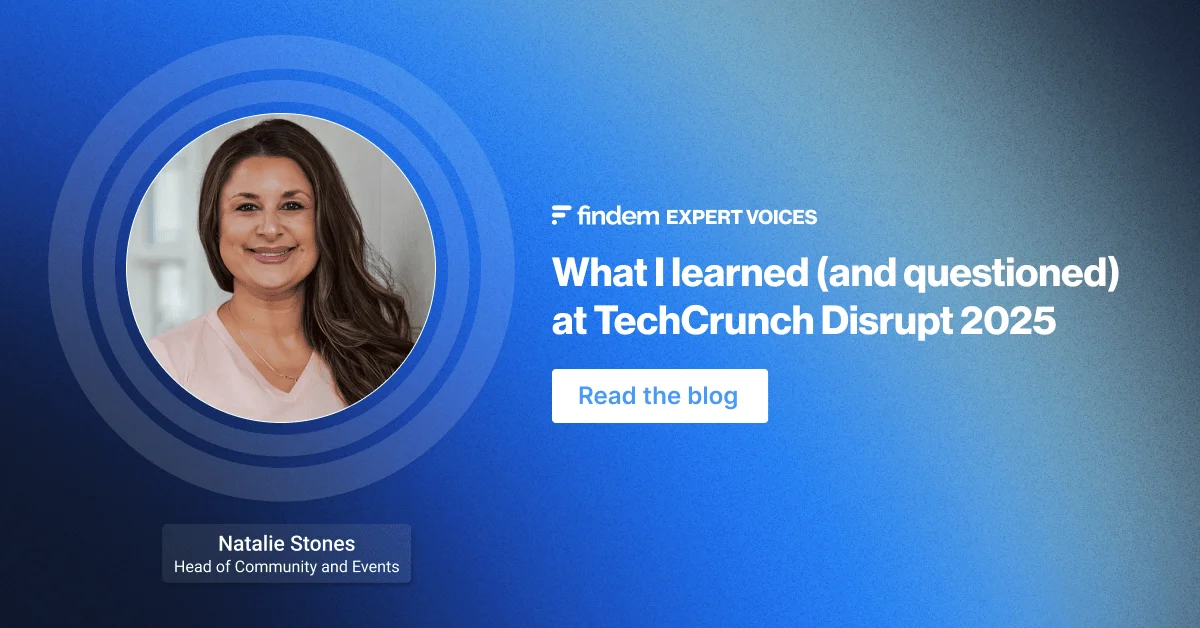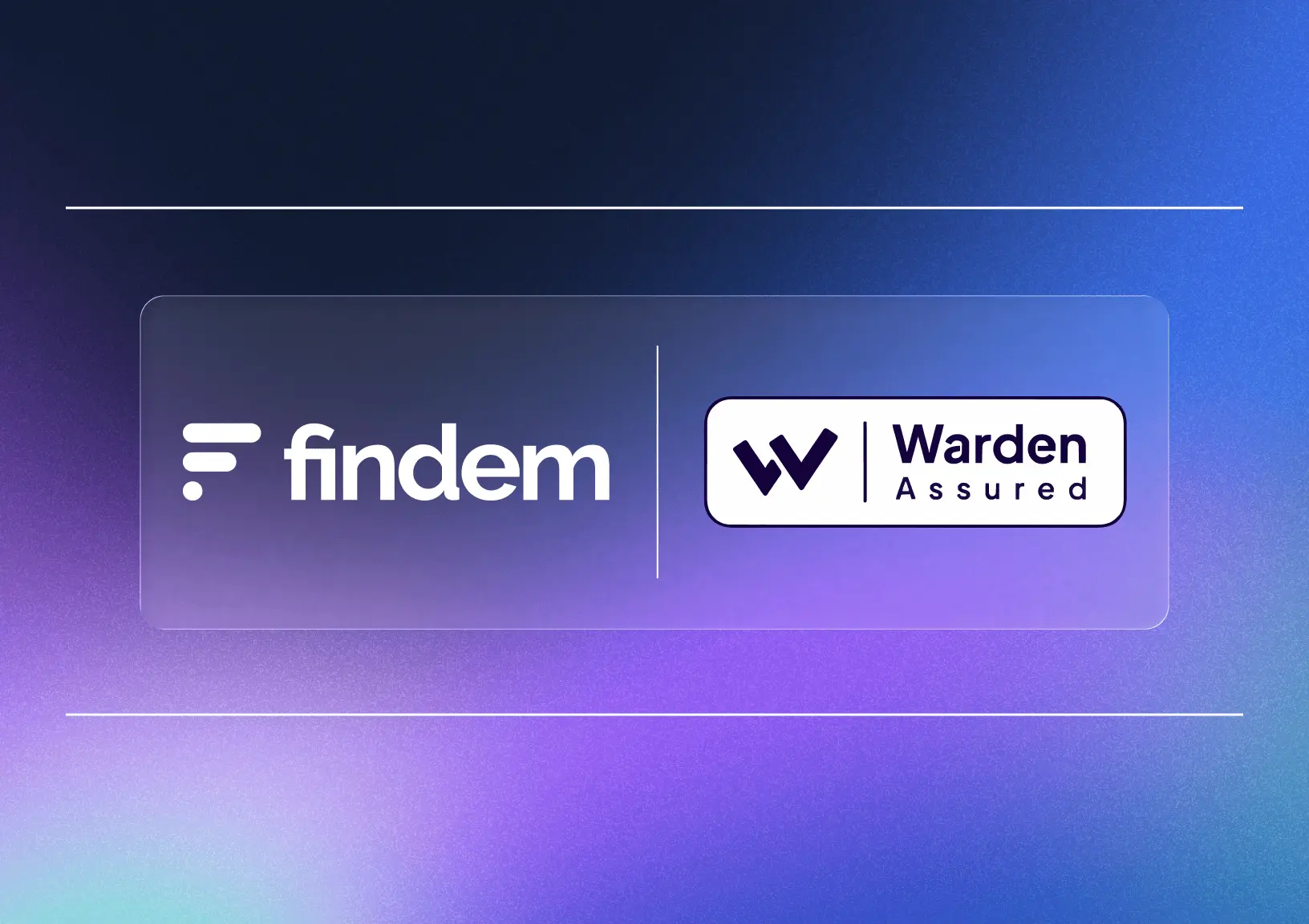.svg)
What I learned (and questioned) at TechCrunch Disrupt 2025: AI, agents, and the future of work
.svg)

Last week I joined thousands of founders, operators, and technologists in San Francisco for TechCrunch Disrupt 2025, where one theme echoed through every conversation: AI isn’t coming for your job — it’s already in it.
From crypto-enabled payroll to AI agents designing homes, the conference buzzed with optimism about automation. But one marketing message stopped me cold: “Stop hiring humans.”
As someone who’s spent my career in talent acquisition, I found that framing not just tone-deaf, but short-sighted. The best innovations I saw weren’t replacing people; they were amplifying them.
👻 Global hiring isn’t spooky, it’s just stuck in the past
In a standout conversation, Francoise Brougher (Pebl) and Aileen Lee (Cowboy Ventures) dug into one of the least glamorous but most important scaling challenges: paying distributed teams.
They explored how startups can move beyond outdated banking systems, and how crypto and stablecoins could modernize global payroll through faster transfers, lower fees, and real-time payments.
Their conversation wasn’t about “AI vs. humans.” It was about enabling more people, everywhere, to work and be paid fairly. Global hiring isn’t scary. Legacy systems are.
🤖 AI and agents: How we build, live, and connect
Jeremiah Owyang’s panel with Alyx van der Vorm (Clyx), Patrick Murphy (Maket), and Thomas Foley (Composio) showed how founders are reimagining how we live and build in the age of AI.
Clyx is creating a social network grounded in real-world connection rather than engagement metrics — a mission that resonated deeply with me, given my work with Talent Collective, where community and belonging sit at the core.
Maket demonstrated generative design that can produce zoning-compliant home plans in minutes, and Composio revealed AI agents that integrate multiple tools and workflows to execute real-world tasks.
What impressed me most wasn’t the tech itself, but the empathy and creativity behind it. These founders were building with people in mind, not just possibilities.
⚖️ The pros and cons of hiring AI agents as early employees
One session that sparked real debate featured Jaspar Carmichael-Jack (Artisan) and Sarah Franklin (Lattice) discussing the rise of “AI employees.”
Sarah’s take felt grounded — she focused on how teams might practically integrate AI agents into existing workflows. Artisan’s accompanying campaign, though, with the slogan “Stop hiring humans,” missed the point. The opportunity isn’t to erase humans, but to reimagine work around what humans do best: judgment, relationships, adaptability.
AI can take the rote and the repetitive. It’s people who decide what matters.
🧠 Shaping the AI stack with Hugging Face
Thomas Wolf from Hugging Face closed the week with a talk that stuck with me: AI isn’t just about speed, it’s about responsibility.
He spoke about open-source innovation, community-driven ethics, and how infrastructure choices today will define whether AI empowers or exploits tomorrow’s workforce. It was a good reminder that progress without principles isn’t progress at all.
💜 Final thoughts from my time at TechCrunch Disrupt 2025
Walking through the Moscone Center in my Findem “Talent Advantage” tee, surrounded by engineers, investors, and founders, I kept thinking about how far we’ve come and how easily we could lose the plot.
We can automate workflows, not people. We can scale innovation without stripping away the human element that gives it purpose.
If Disrupt left me with one takeaway, it’s this: AI’s success will depend on how we center people, not replace them.










